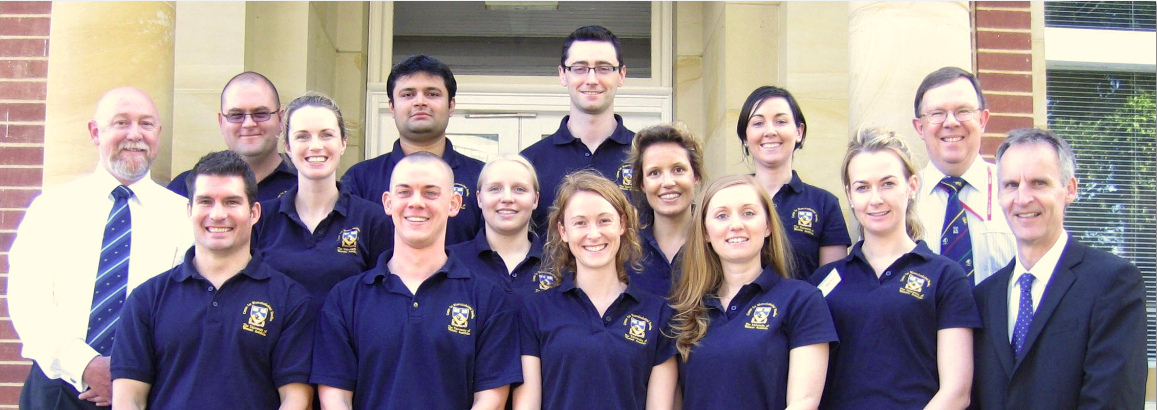BJSM is will highlight various career options in a series of blogs. The first in this series is about the University of Western Australia but we hope that principles from various blogs apply broadly to those considering further education.

UWA Master of Manual Therapy: More job satisfaction for Physiotherapists
Modern physiotherapy has many underlying specialities. As new graduates, physiotherapists are faced with important decisions upon graduation. Career direction may be influenced by personal interests, work availability, salary and family considerations. Within a few years of practice, it becomes clear to most physiotherapists that, although their undergraduate course experience has given them broad knowledge and experience in physiotherapy, more is required to move them to the next level in their chosen field. Indeed one recent study had found that physiotherapists who had accrued more continuing professional development hours after graduation had higher salaries and were more satisfied within the profession (Mulcahy 2010). Specialising in musculoskeletal practice can provide greater autonomy, a more diverse range of clientele, multiple opportunities for professional development and allows physiotherapists to work within a multidisciplinary team.
A postgraduate degree in musculoskeletal physiotherapy can offer graduate physiotherapists greater understanding of a patient’s presentation and therefore greater job satisfaction. Confidence in management decisions can be attained through in-depth clinical assessment, incorporating evidence based practice, and higher clinical reasoning skills.
The Centre for Musculoskeletal Studies, at The University of Western Australia, offers a Master of Manual Therapy degree for both local and international students. This contemporary postgraduate course is designed to meet the needs of busy clinicians. With a flexible framework, the course provides each postgraduate student the opportunity to complete learning modules remotely, enabling them to continue to manage full-time case loads while completing the distance study packages. Research assignments teach the fundamental principles of evidence-based practice and acknowledge recent developments within the musculoskeletal field. Participation in a case conference as part of the clinical residency in Perth, Western Australia provides a platform for further career development.
An intensive 12 week clinical residency semester is undertaken at the University to build on existing experience and enforce clinical relevance of new learning. Focusing on clinical reasoning and manual therapy skills, the residency helps students incorporate what they’ve learnt from their previous modules. Clinical practice is performed under the supervision of highly experienced postgraduate trained clinicians. Anatomy wet-lab dissection allows students to refresh and maximise their anatomical knowledge, further improving clinical reasoning.
Mentoring by experienced clinicians, many of whom are Fellows of the Australian College of Physiotherapists, along with medical specialists, offer students challenging, up to date, and clinically relevant, skill development within a safe learning environment. It also allows students the opportunity to travel to Perth and experience a part of Australia famous for beaches, excellent wine, sunshine and wide-open space.
Professor & Director of the Centre for Musculoskeletal Studies, Kevin Singer states “Our aim is to provide a clinically relevant Masters program that is flexible yet challenging and meets career development needs of excellent manual skills based upon sound clinical reasoning and available evidence.”
For more information please contact Professor Singer: kevin.singer@uwa.edu.au cms.uwa.edu.au
Reference:
Mulcahy AJ, Jones S, Strauss G. et al. ‘The impact of recent physiotherapy graduates in the workforce. Australian Health Review, 2010, 34: 252-259
Competing interest: BJSM editor Karim Khan is an honorary Professor at the University of Western Australia; he receives library privileges but no salary for this position. The textbook Clinical Sports Medicine is used at the UWA MSc course and Professor Kevin Singer is the coauthor of the Thoracic and Chest Pain chapter for which he receives no payment or royalty. BJSM welcomes contributions for this series which aims to help clinicians consider options for professional development.